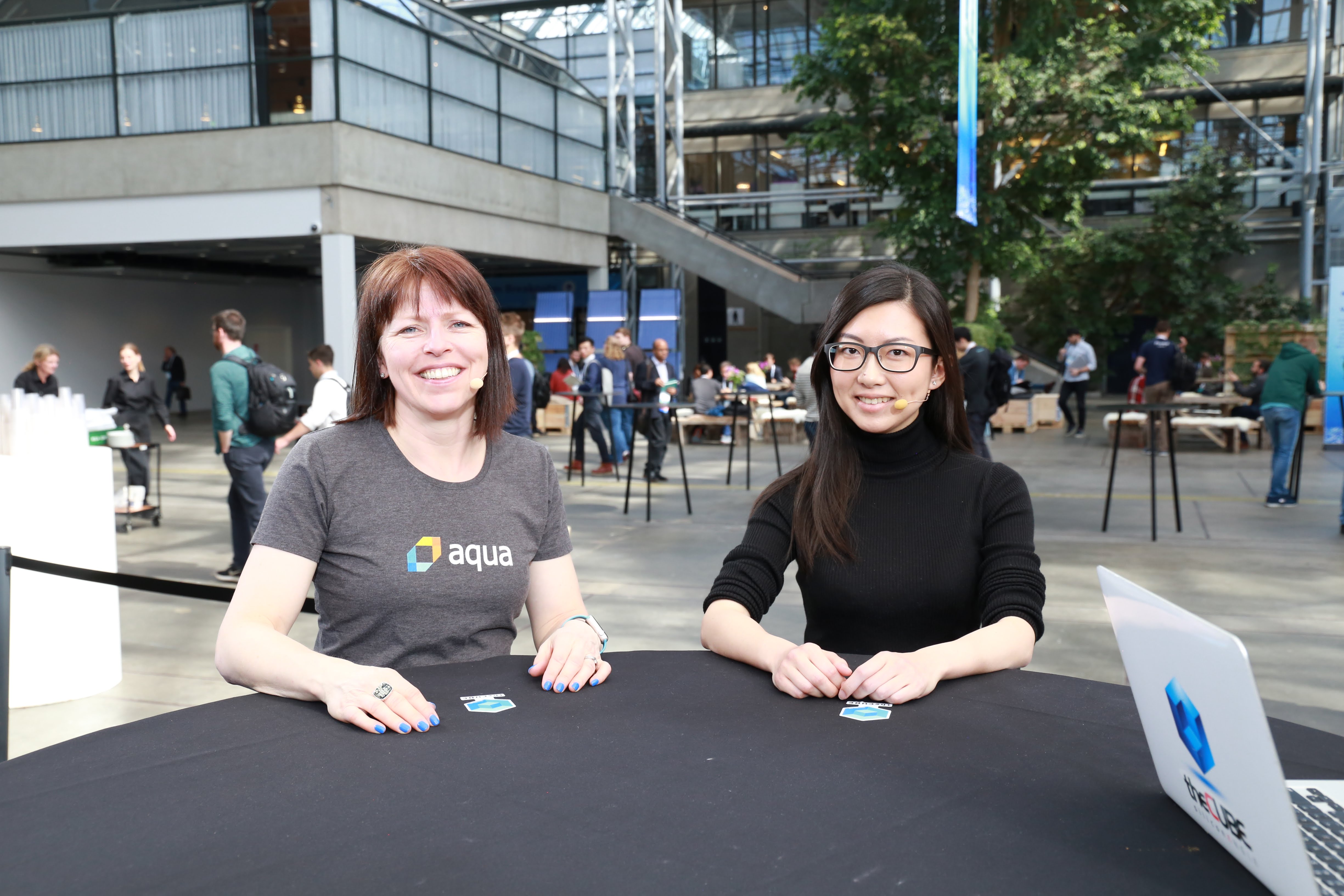 NEWS
NEWS
 NEWS
NEWS
 NEWS
NEWS
One of the fastest-growing open-source projects in history, the Kubernetes container management platform recently became the first to graduate among current Cloud Native Computing Foundation projects. The platform is continuing to gain recognition in the consumer market as well, with 43 percent of businesses reporting Kubernetes use. As memberships grow and customer satisfaction remains high, those at the helm of Kubernetes are excited at the potential it holds for the market at large.
“Kubernetes has graduated. That’s a real signal of maturity, a signal to the end-user companies out there that … Kubernetes is here to stay,” said Liz Rice (pictured, left), co-chair of KubeCon and CloudNativeCon at The Linux Foundation. “… It’s going to continue to evolve and improve.”
Rice and Janet Kuo (pictured, right), software engineer at Google Inc., spoke with John Furrier (@furrier), co-host of theCUBE, SiliconANGLE Media’s mobile livestreaming studio, at the KubeCon CloudNativeCon EU event in Denmark. They discussed Kubernetes’ growth and efficacy, as well as plans for the platform’s future. (* Disclosure below.)
With a stable governance model, supportive mission, and stamps of approval from leaders like Google, IBM Corp. and Red Hat Inc., Kubernetes has become the de facto standard for deployment and management of containerized applications in the enterprise. “It’s allowing businesses to develop applications … [and] respond to their market needs more quickly. End users are seeing that in more responsive applications, more responsive services, and improved delivery of tech,” Rice said.
The platform’s strong focus on community is apparent at KubeCon, where a committee of 60 reviewed over 1,000 submissions to decide the event’s final programming. “We can’t take them all, but we use … the advice from the program committee to try and … bring different voices in. We want to have subject matter experts and new voices … big-name companies and start-ups,” Rice said.
As they begin planning for an event in China, the Kubernetes team is excited to see how different international user priorities will transform event programming. “A lot of China companies, they are invested pretty heavily into Kubernetes and cloud-native technology, and they are very innovative. … We are expecting to see submissions from those contributors, companies and users,” Kuo said.
From the platform’s open-source format to the event’s collaborative programming, the Kubernetes movement is proving to be one driven by the community. “Companies are coming in and sharing their learnings. … Different … groups and projects are all collaborating on problem solving. And that’s really exciting,” Rice concluded.
Watch the complete video interview below, and be sure to check out more of SiliconANGLE’s and theCUBE’s coverage of KubeCon CloudNativeCon EU. (* Disclosure: CNCF sponsored this segment of theCUBE. Neither CNCF nor other sponsors have editorial control over content on theCUBE or SiliconANGLE.)
Support our mission to keep content open and free by engaging with theCUBE community. Join theCUBE’s Alumni Trust Network, where technology leaders connect, share intelligence and create opportunities.
Founded by tech visionaries John Furrier and Dave Vellante, SiliconANGLE Media has built a dynamic ecosystem of industry-leading digital media brands that reach 15+ million elite tech professionals. Our new proprietary theCUBE AI Video Cloud is breaking ground in audience interaction, leveraging theCUBEai.com neural network to help technology companies make data-driven decisions and stay at the forefront of industry conversations.